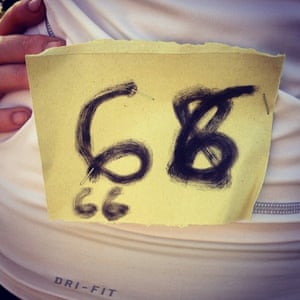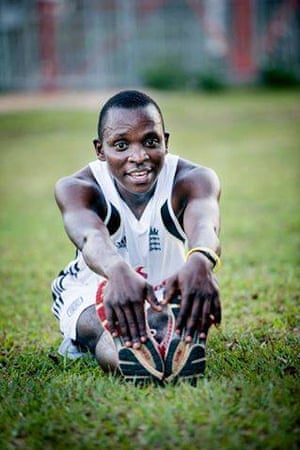
East Africa is the home of distance running. And, for the first half of 2015, I was lucky enough to live in a small town in Uganda, while organising a marathon. I knew that running was a big deal there, not least as home to 2012 Olympic marathon gold medallist Stephen Kiprotich. Yet, while that’s undoubtedly true at an elite level, the everyday running scene is far from established.
I never had a run in Uganda where I wasn’t joined by cheering locals; children holding my hand and running alongside me (barefoot, barely out of breath). And there’s a reason that distance runners come to east Africa to train seriously: the views are spectacular, the altitude is challenging, the paths are bouncy dirt; my legs have never known hill training like it.

The only thing that I missed from home was other runners for company. Running for leisure is not really a thing in Uganda. There are a few organised races: I joined a 7km run after a few weeks in the country. It was great fun, but definitely not the organised racing that runners would expect in the UK: my watch, at least, claimed the course was 5km; we started an hour and a half late; and the race numbers were superbly individual.
The real issue, though, would hit me on my solo runs while out plotting the marathon course. I would often have locals tag along for the hell of it. Wearing dress shoes, jeans and shirts, they would join me for seven, eight or 15 kilometres, chatting and singing the whole way, and then run off again in the direction of home. Yet they did not consider themselves runners.
I don’t believe that you need a fancy GPS watch or even particularly good trainers to run, but I do believe you need motivation, whether that’s from a community of runners, organised races, or knowing the health benefits of the sport. For me, running in Uganda was running in Uganda! But for the locals, it’s just running.
Over time, I came to understand some of the reasons for this. Nsubuga “Emma” Emmanuel, one of the good friends I made there, has started a running club for his local area in the wake of the marathon, and he was kind enough to answer some of my questions.
Emma started Masaka Runners Club (MRC), to help people stay healthy and to prevent crime by giving otherwise idle adolescents something engaging to do after school. MRC meets twice a week and has grown to 27 members of mixed abilities since summer.

Why do you think there was no running club in the town before yours? “People lack information about the rationale for exercising in their daily life and there is no emphasis on sports, especially in schools. I didn’t have any desire to be an athlete before the marathon came to town but I am very grateful that I am now one of the fastest runners around town. Sportswear here is also expensive and bad quality.”
What is the most challenging thing about running in Uganda? “First of all, the unsafe roads without security lights for people who wish to run at night. The high altitude and hills are also a big challenge in Uganda. Lack of proper coaching from experts in running and a lack of running costumes.”
How has running changed your life? “I breathe well after fantastic training. I make new friends in the club. I have lost weight. Running has made me smart and has given me many ideas. I’m no longer bored on my days off and I have discovered new places when tracking new routes.”
The Rift marathon, half marathon and 10k in the Rift Valley, Uganda, take place in November 2016. Find out more at runningtheriftmarathon.com; you can read more of Emmanuel’s interview here
Source: Read Full Article